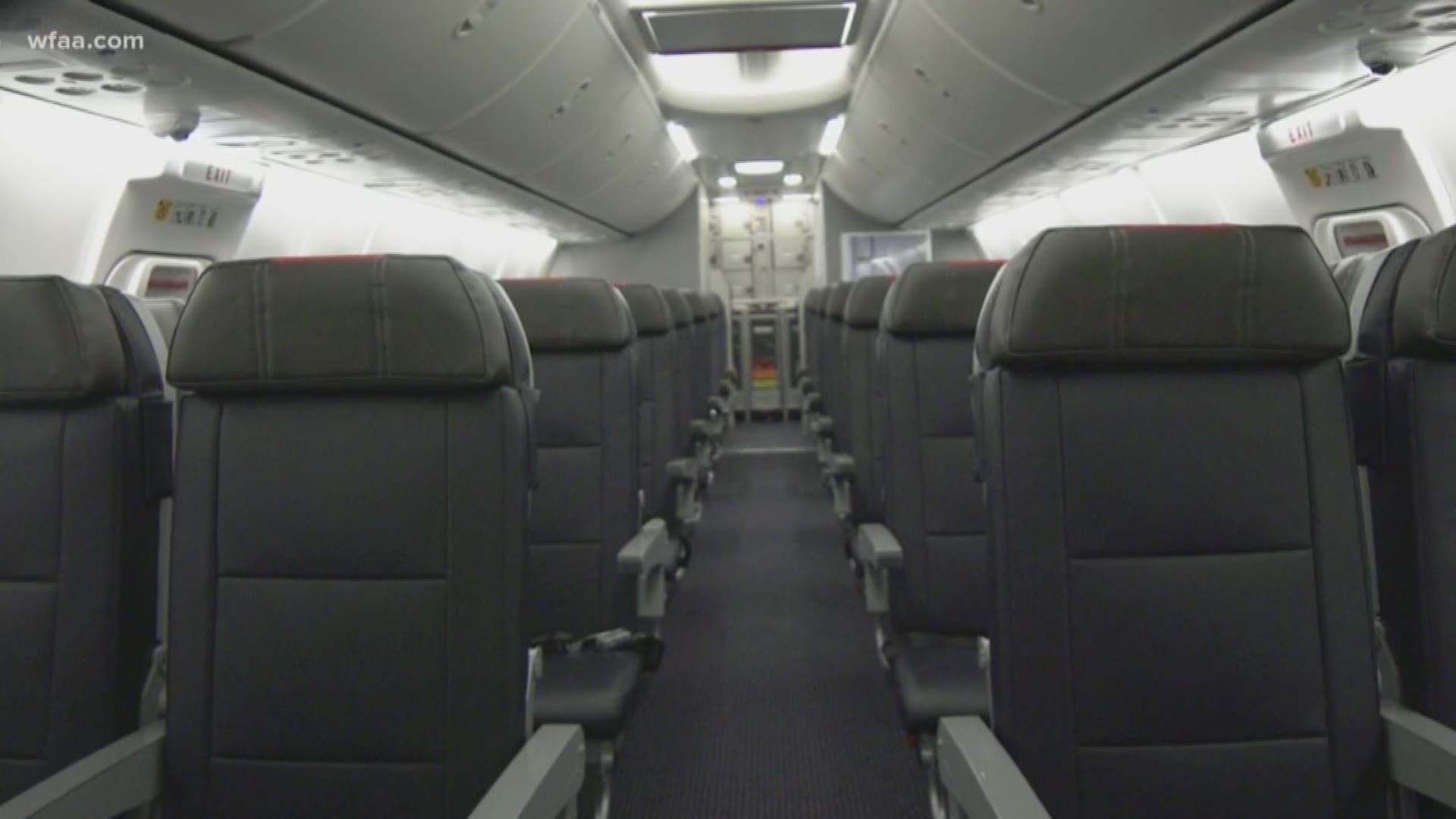DALLAS — Every day in America, the FAA says 2.7 million people travel on an airplane. That's a lot of folks all jammed up together with their germs. So, I want to know if flying increases your chances of getting sick.
For answers, I'm looking at scientific journals, government health studies and talking to Vicki Hertzberg. She's a PhD biostatistician at Emory University in Atlanta.
“Does flying increase the chances that you'll get sick?” I ask.
“In some cases it does, depending upon where you're seated,” Hertzberg says.
Let’s start this exploration by asking how far can germs travel from a sick person? The World Health Organization says about 3 feet.
With that information Hertzberg's researchers took to the air and observed passenger behavior on coast-to-coast flights then published their study, funded by Boeing, in the Proceedings of the National Academy of Sciences.
Imagine a traveler in the aisle seat of row 14 is sick. His germs travel 3 feet down his row to the middle and window seat and also to the row in front and the one in back. All these people have an 80-100% chance of contact.
But it doesn't stop there. On the other side of the plane, the travelers in the three rows of aisle seats also have an 80-100% chance of contact. The risk drops fast in the middle and window seats.
“So, all the people in the window had very low contacts and people in the aisles had much higher contacts?” I ask Hertzberg.
“That's right,” she says.
The trade association for the world's airlines says, planes have onboard air filters help reduce the spread of illness.
The International Air Transport Association says "...the risk (of contracting an illness) on airplanes is probably lower than in many confined spaces" because filters capture greater than 99% of airborne microbes.
“By looking at this, what is the best seat to sit in if you'd like to not come in contact with someone who has some kind of illness?” I ask Hertzberg.
“Personally, I choose a window seat, when it's just me flying. I get into the window seat and I don't move,” she says.
So, does flying increase your chances of getting sick? Yes, but only if you're seated in close proximity to a sick person.
Got something you want verified? Send me an email at david@verifytv.com

